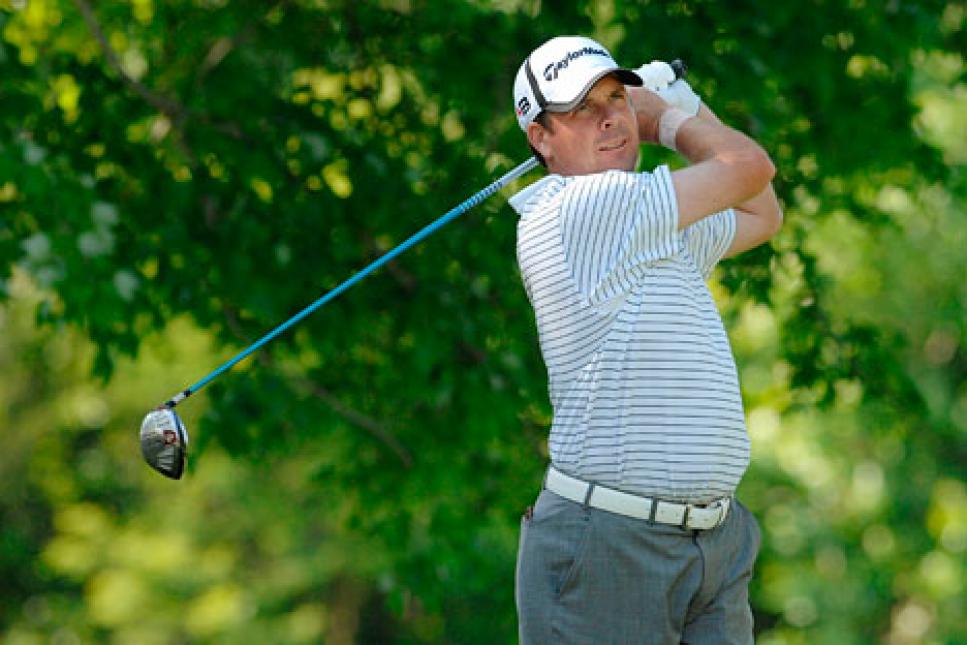News
Barron Awaits Ruling

Barron is the first player to be suspended under the PGA Tour's drug policy.
A judge for the U.S. District Court Western District of Tennessee in Memphis heard three-and-a-half hours of testimony Friday in the case of Stephen Douglas Barron vs. the PGA Tour Inc. and said he would have a ruling on a temporary restraining order that would allow Barron to compete in PGA Tour Q school by Saturday at the latest and possibly as early as today, according to a lawyer for the player suspended a year for violating the tour's drug policy.
"We had a very thoughtful judge." Jeffery Rosenblum of Rosenblum & Reisman told GolfDigest.com. "He said he understands the importance of making a ruling before Q school practice rounds begin on Monday." A tour spokesperson said it was policy not to comment on pending legal cases and referred comment to the Declaration of Facts filed Friday on behalf of Andrew B. Levinson, the tour's executive director of the anti-doping program. That declaration said Barron asked for and was denied a therapeutic use exemption (TUE).
Doug Barron, the first player suspended under the drug policy that went in effect July 2008, on Thursday filed suit seeking to overturn the suspension. In addition, he is asking for monetary damages, claiming the PGA Tour has defamed him because of a news release Barron's lawyers say was incomplete and resulted in stories that "unfairly labeled him as a doper and cheater," according to the complaint.
The thrust of the complaint is that the medications for which Barron tested positive were prescribed by doctors, "for legitimate medical reasons," including a beta-blocker, Propranol, that he had been taking for 22 years "for a condition known as mitral valve prolapse."
He also was taking testosterone shots to counter low testosterone levels. The suit alleges that Barron had sought a therapeutic-use exemption that the PGA Tour denied him. The suit said that the PGA Tour asked that he wean himself off the beta-blocker, which he was in the process of doing when he failed the test.
The PGA Tour filed its response Friday and claimed that after it denied his request for a therapeutic-use exemption for the Propranol on Oct. 10, 2008 and his request for a TUE for testosterone on January 21, Barron did not appeal the decision, then tested positive June 11 for the two substances and was suspended for his "blatant and intentional use of two different prohibited substances despite the denial of his TUE applications." The tour said the TUE was denied after review by two independent medical panels, one composed of cardiologists and the other of endocrinologists.
Barron had issued a statement that was included in the PGA Tour's news release on his suspension on Nov. 2. "I would like to apologize for any negative perception of the tour or its players resulting from my suspension," he said. "I want my fellow tour members and the fans to know that I did not intend to gain an unfair competitive advantage or enhance my performance while on tour."
The suit claims that the PGA Tour "refused to issue a press release that included the rest of the story," that the medications had been prescribed for legitimate medial purposes. "The statement ... was not a complete statement of true facts and created a false and defamatory impression through innuendo," the suit says.
Barron is asking the courts to immediately block the suspension, so that he might participate in the second stage of PGA Tour Qualifying next week. He also is asking that the PGA Tour's anti-doping policy be declared "null and void."
Page 13 of the PGA Tour Anti-Doping Program Manual under the header, J. No Judicial Review, reads: "As a condition of membership and the opportunity to participate in PGA TOUR co-sponsored, approved or coordinated tournaments, players expressly waive the right to seek judicial review of final decisions under the Program."
Asked if that language eliminating the right of players to outside legal review of drug testing was too restrictive, Rosenblum said: "The Tour lawyer, who did an excellent job, did not have an answer for that."